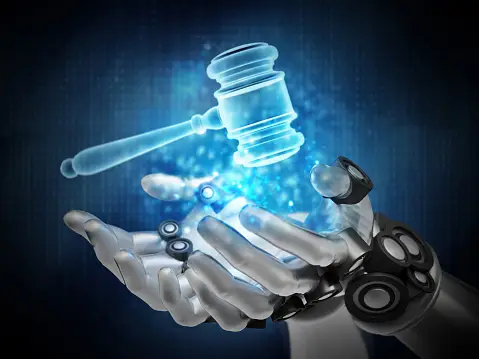Have you ever wondered how the digital landscape crosses with the legal realm in the Lone Star State? Picture this: the virtual corridors echoing with the consequences of cyberbullying. Like a watchful guardian, Texas’s cyberbullying laws stand tall against this modern-age menace. Let’s unravel cyberbullying in the vast expanse of Texas. We will also explore the legal shields that aim to protect the online spaces of its residents.
What Does Cyberbullying Mean?
In this digital age, cyberbullying is a common challenge that goes beyond the boundaries of traditional bullying. It represents a joining of technology and cruelty. Here, individuals exploit the anonymity and reach of the internet to inflict harm upon their victims. Unlike the physical aspects of bullying, cyberbullying operates in a realm that knows no geographical constraints. It affects the lives of individuals regardless of their physical location.
The spectrum of cyberbullying is diverse, including a wide array of wicked activities. The tactics employed by cyberbullies are as varied as the platforms they exploit. They include hurtful messages, false rumors, and online impersonation. Social media, messaging apps, online forums – these are the arenas where this modern-age menace thrives. This creates an omnipresent threat, particularly for the younger generation navigating the complexities of the virtual landscape.

The consequences of cyberbullying extend far beyond the digital realm, leaving emotional scars on its victims. Anxiety, depression, and a profound sense of isolation become unwelcome companions for those who fall prey to these malicious intentions. Once perceived as a space for connection and communication, the virtual world transforms into a battlefield where emotional well-being is often the casualty.
Addressing the nature of cyberbullying demands a comprehensive approach. Technological cautiousness is undoubtedly crucial, but so is a commitment from both legal and social perspectives. Understanding the nuanced dynamics of this digital dilemma is important in formulating effective measures to combat its popularity. Navigating the web of online interactions makes it necessary to unravel the layers of cyberbullying. This is to protect the vulnerable and foster a digital landscape where empathy and respect can thrive.
The Effects Of Cyberbullying
Beyond the seemingly short boundaries of screens and keyboards, the consequences of cyberbullying echo through the lives of its victims. It leaves a trail of emotional, psychological, and sometimes even physical stress.
At the forefront of its impact is the increased stress experienced by those targeted. The constant barrage of hurtful messages, malicious comments, or the spreading of false information generates an environment of perpetual anxiety. The virtual realm, once a space for connection and communication, transforms into a battleground where victims grapple with the unseen enemies monitoring their online presence.

The dishonest nature of cyberbullying takes a toll on mental health, causing conditions such as anxiety and depression. The emotional well-being of victims becomes a casualty as they navigate the dangerous waters of the digital onslaught. The erosion of self-confidence is particularly sad as individuals find their self-worth under siege, often questioning their value and identity.
This digital act doesn’t confine its consequences to the virtual world alone. The real-world implications are real and extend to academic and professional spheres. Victims frequently encounter challenges in focusing on their studies or work, as the psychological burden of cyberbullying infiltrates these aspects of their lives. Academic performance may suffer, perpetuating setbacks that hinder personal and professional growth.
The interconnected nature of online platforms increases the scope of humiliation. The viral spread of insulting content increases the impact, and escaping the digital quagmire seems elusive. Social isolation can ensue as victims grapple with feelings of shame and embarrassment, often withdrawing from offline relationships to escape the constant torment lurking in the virtual shadows.
Cyberbullying Laws In Texas
In Texas, the battle against cyberbullying unfolds as a complex tapestry woven with legal provisions designed to protect individuals from the effects of online harassment. As the Lone Star State recognizes the profound impact of cyberbullying on the lives of its residents, its legal framework stands as a watchman, addressing the multifaceted challenges presented by this modern-age menace.
Defining the Parameters:
In the vast expanse of Texas law, cyberbullying finds its definition as the use of any electronic communication device to engage in bullying or harassment that affects a student’s educational opportunities. This inclusive characterization encapsulates a spectrum of online bullying, ranging from hurtful messages and social media attacks to the unauthorized dissemination of personal information.
Embedded in Anti-Bullying Legislation:
A pivotal component of Texas’s approach to combatting cyberbullying is its integration into the broader anti-bullying laws of the state. Recognizing that the impact of bullying extends beyond physical spaces, these laws extend their reach to the digital domain, reflecting a nuanced understanding of the challenges posed by online harassment.
Reporting Mechanisms and Investigations:
Mandated by Texas cyberbullying laws, school districts within the state must adopt policies that facilitate reporting bullying incidents, including cyberbullying. This measure ensures that students, parents, and educators can report instances immediately, triggering thorough investigations. These investigations, in turn, pave the way for the implementation of appropriate measures to address the specific circumstances and prevent the repeat of such incidents.
Consequences Aligned with Severity:
Texas has applied a tiered system of consequences for individuals found guilty of cyberbullying. The seriousness of consequences is based on the nature and repeat of the offense. They range from counseling and educational programs to more severe actions such as suspension or expulsion. This approach seeks to balance disciplinary measures and provide opportunities for education and rehabilitation.
Criminal Implications:

In addition to consequences within the educational system, certain cyberbullying behaviors can lead to criminal charges in Texas. The legal framework allows for legal action against individuals engaging in online harassment, stalking, or the sharing of explicit content without consent. This dual-layered approach reinforces the gravity with which the state views such offenses and underscores its commitment to holding perpetrators accountable.
Protective Measures:
Texas allows victims of cyberbullying to take necessary steps to protect themselves through the legal system. The state allows for the seeking of protective orders against individuals involved in cyberbullying. These orders serve as a legal barrier to shield victims from further harm and harassment online and offline.
Adapting to Technological Evolution:
As technology continues to evolve, the legal landscape surrounding cyberbullying in Texas remains dynamic. The state is committed to continuously updating and refining its legal framework to address emerging threats and challenges associated with online harassment. This adaptability reflects the understanding that the fight against cyberbullying is an ongoing process that demands a responsive and changing legal approach.
As we delve deeper into the legal portion of cyberbullying laws in Texas, we unravel a narrative that extends beyond mere legislation. It’s a testament to the state’s commitment to creating safe, respectful, and helpful environments for all its residents in the ever-evolving digital frontier. The delicate balance between supporting the freedom of expression and protecting its citizens’ dignity and mental well-being in the virtual realm is a challenge that Texas navigates with diligence and foresight.
What are the consequences for individuals found guilty of cyberbullying in Texas?
Texas has implemented a tiered system of consequences, ranging from counseling and educational programs to severe disciplinary actions like suspension or expulsion. The severity of consequences is calibrated based on the nature and repetition of the offense, aiming for a balance between corrective measures and opportunities for education and rehabilitation.
Are there criminal implications for cyberbullying in Texas?
Yes, certain cyberbullying behaviors in Texas can lead to criminal charges. Legal action can be taken against individuals engaging in online harassment, stalking, or the dissemination of explicit content without consent. This dual-layered approach underscores the state’s commitment to holding perpetrators accountable for their actions.
How does Texas empower victims of cyberbullying to protect themselves legally?
Texas allows victims of cyberbullying to seek protective orders against individuals involved in such acts. These protective orders serve as a legal barrier, aiming to shield victims from further harm and harassment online and offline.
How does Texas adapt its legal framework to technological evolution in the context of cyberbullying?
Texas is committed to continuously updating and refining its legal framework to address emerging threats and challenges associated with online harassment. This adaptability reflects an understanding that the fight against cyberbullying is an ongoing process, demanding a responsive and evolving legal approach.
What is the broader societal impact of cyberbullying, and how does Texas address this issue collectively?
Cyberbullying in Texas affects individuals and has broader societal implications. Communities grapple with the fallout of a digitally fueled culture of aggression. Addressing this issue requires a recognition of its toll and a collective effort to cultivate a safer and more compassionate online environment.
Oluwatukesi Joseph is a Content Writer at LOBF. He holds a Master’s Degree from Obafemi Awolowo University in Architecture, However, his love for writing and content creation has transitioned him into the writing and content marketing field. He has gained relevant certification from other notable Universities where he developed a strong foundation in content marketing and writing.
Outside of work, Joseph enjoys spending quality time with friends and family and playing chess, which he finds often complements his professional pursuits. Joseph is excited to be part of the dynamic team at The Law Office of Bryan Fagan, contributing his expertise to spreading the good news of LOBF to Families across Texas.




